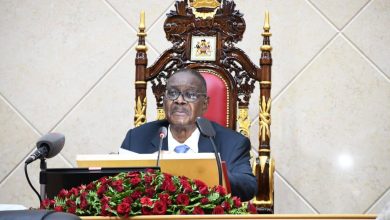Enter APM: Where do we go from here?
In the midst of economic hardships more pronounced by rising cost of living, high inflation and interest rates as well as foreign exchange and fuel scarcities, Malawians on September 16 cast their votes and ushered in a new administration.
Dust has now settled on the September 16 General Election following the inauguration of President Peter Mutharika as the country’s seventh President on October 4 2025 at the Kamuzu Stadium in Blantyre.
Democratic Progressive Party (DPP) presidential candidate Mutharika, who between 2014 and June 2020 served as the country’s fifth President, made a comeback following a resounding 57 percent victory over Malawi Congress Party (MP) candidate and then incumbent president Lazarus Chakwera and 15 others.
Now that the election mood has died down, it is time to get down to work and I would say that Mutharika, aka APM, hit the ground running by appointing a partial Cabinet and making changes in other key governance institutions barely 24 hours after taking his oath and being inaugurated.
Malawi’s economy is in the doldrums, choked by a public debt stock of K16.19 trillion or equivalent to 86.4 percent of the gross domestic product (GDP), with external debt stock recorded at $4.27 billion (about K7.4 trillion) and domestic debt at $5 billion (about K8.79 trillion) based on Ministry of Finance and Economic Affairs data.
Inflation rate stood at 28.2 percent in August 2025 from 27.30 percent in July of 2025 while interest rates are at 26 percent.
By contrast, when Mutharika and DPP were kicked out of government five years ago, year-on-year headline inflation rate was at 8.5 percent and the policy rate or the benchmark interest rate was 13.50 percent.
In June 2020, the kwacha traded at K750 per dollar compared to the present official rate of K1 751 following two currency devaluations in May 2022 and November 2023 purportedly meant to align the currency with the parallel market. However, the chase for the moving target that is ‘black market rate’ has not yielded desired results as the parallel rate has hit as high as K4 500, pushing up the cost of goods as traders and importers claim to be sourcing forex from the black market.
For the record, some authorised dealer banks have suspended issuance of foreign exchange for travel due to the acute shortage.
From the picture above, it is clear that the new administration has a daunting task of resuscitating the economy from the death bed.
By the end of the Chakwera administration’s five-year term, the Biblical destination of the Promised Land of Canaan flowing milk and honey was not reached. If anything, most Malawians are worse off in the wilderness.
Now, what will it take to turnaround the country’s economic fortunes?
To quote economist Taz Chaponda in his five-part series published in Business Review in The Nation ahead of the elections, “it all boils down to leadership” and who is given what role!
He wrote: “During an emergency or crisis situation, we don’t want an amateur team at the controls. Get the best possible technicians and experts to help navigate the stormy weather.
This is particularly important for the central ministries of Finance, Trade, Foreign Affairs, Agriculture, Lands, Justice and Home Affairs.”
In other words, Mutharika will need to assemble a ‘war Cabinet’ comprising people of great depth and proven experience, not efulefus, especially in the key ministries. People with a good or solid understanding of economics, politics, diplomacy and firm in their approach are critical to executing economic recovery plans.
From APM’s appointments so far, I must say that the choice of economist Joseph Mwanamvekha as Minister of Finance, Economic Planning and Development inspires hope. He is one person who has done it all both in the private and public sectors and I am hopeful he will deliver.
Poor or lack of coordination in terms of policy mix will also need addressing if things are to turn for the better. The monetary policy and fiscal policy should read each other to avoid the chaos we see.
Corruption is yet another major spoiler of successful budget implementation and economic recovery as public procurement tends to import inflation. To finance procurement, the government often resorts to borrowing from the domestic market, crowding out the private sector, a development that influences rising interest rates.
Fiscal discipline has no substitute. Export-led recovery and reform of foreign exchange markets to avert a deeper balance-of-payments crisis should be embraced.
In recent years, Malawi has become a “black market” economy where everything has to be sourced through the parallel market. The parallel market ‘Monetary Policy Committee [MPC]’ has been allowed to call the shots to the detriment of the economy. This madness must stop forthwith!
The economy is everything. Bad economic management has brought down governments both closer home and beyond. “It’s the economy, stupid!”, so said Bill Clinton’s campaign manager James Carville in the successful White House bid in 1992.
My hearty congratulations to President Peter Mutharika, First Vice-President Jane Ansah, Second Vice-President Enoch Chihana and the team.
Where do we go from here? Time will tell.



